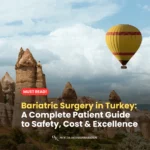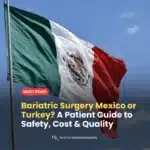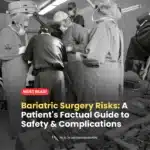Bariatric Revision Surgery: A Patient’s Guide to Weight Regain & Complications
Welcome to our expert guide on bariatric revision surgery. For the vast majority of patients, a primary weight loss surgery like the gastric sleeve is a highly effective, life-changing tool. However, for a small percentage of patients, challenges can arise over time. You may be experiencing insufficient weight loss, significant weight regain, or a new medical complication like severe acid reflux.
If you are in this situation, it is critical to understand that this is not a “failure.” Obesity is a complex, chronic, and relapsing disease. Sometimes, the first surgical tool needs to be adjusted or converted to a new one. This is what bariatric revision surgery is for. Our expert team is here to help you understand this complex topic, and we provide personalized surgical solutions for even the most challenging cases.
Free WhatsApp Consultation:
Contact us now! 👉 +90 530 489 94 74
Our patıents
Meet Some of Our Patients Who Underwent Bariatric Surgery


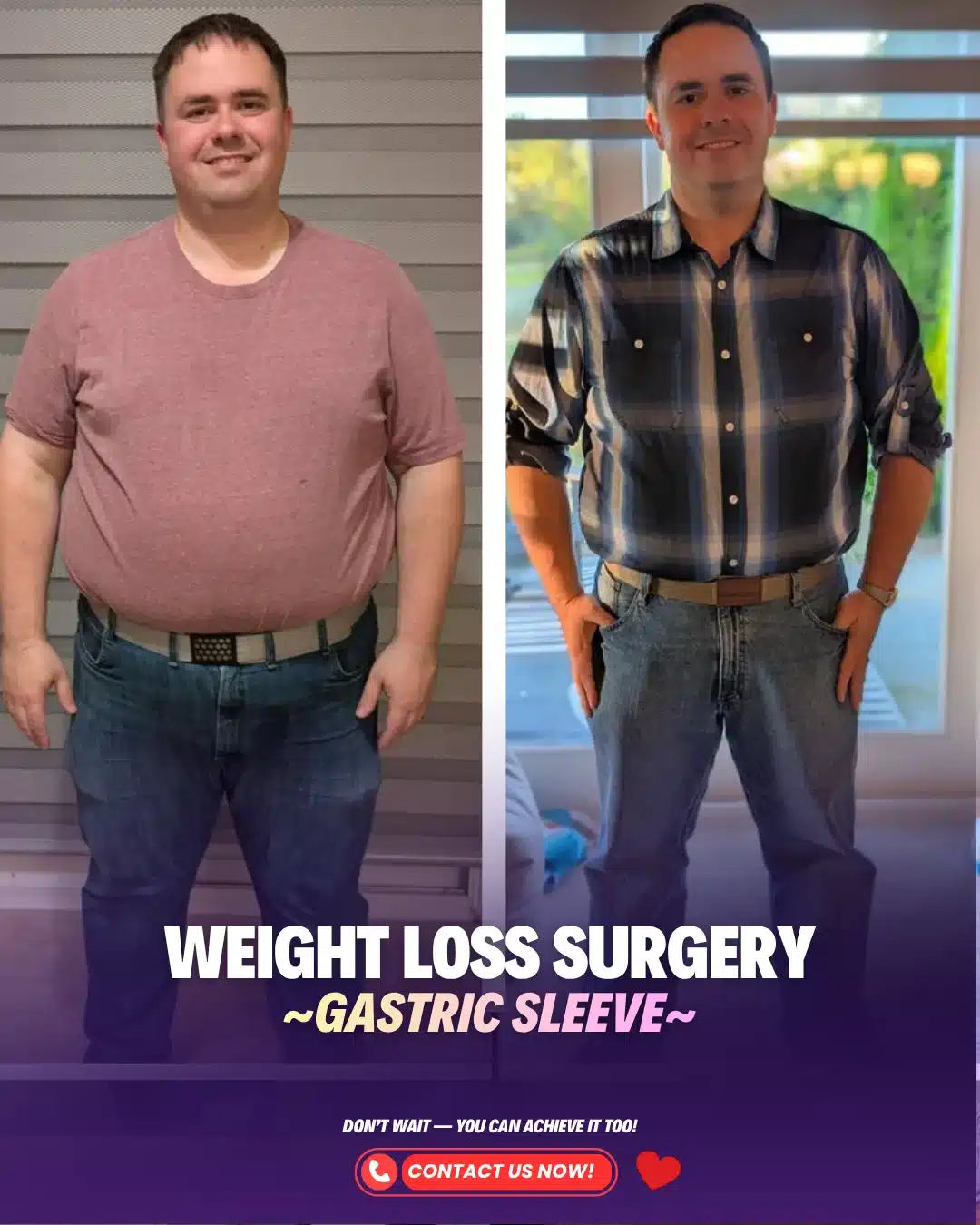
What Is Bariatric Revision Surgery?
A bariatric revision surgery is a secondary (or “revisional”) operation performed to alter or repair a previous weight loss surgery. This is not a simple “touch-up.” Revisional procedures are significantly more complex and technically demanding than primary (first-time) surgeries. This is because the surgeon must work in an area that has existing scar tissue and altered anatomy.
For this reason, it is absolutely essential that a revisional bariatric surgery is performed *only* by a highly experienced, high-volume surgeon who has a specialty in this area. These procedures are performed laparoscopically (using “keyhole” incisions) to ensure the safest possible outcome and a faster recovery. A revision is a major operation that is only considered after a thorough medical evaluation to determine *why* the first surgery is no longer working as intended.
What is the most common bariatric revision surgery?
One of the most common bariatric revision procedures performed today is the conversion of a gastric sleeve to a gastric bypass (RNY). This is often the “gold standard” solution to address the two main reasons for revision: significant weight regain or severe, chronic acid reflux (GERD).
Why Is Bariatric Revision Surgery Needed? (The 2 Main Reasons)
A bariatric revision is never the first step. Our team will first evaluate you to see if your challenges can be met with diet, exercise, and lifestyle changes. If not, we will conduct a full medical evaluation, including an endoscopy (a camera test) and X-rays, to see if you are eligible for a surgical revision.
There are two primary categories that meet the bariatric revision requirements:
1. Significant Weight Regain or Insufficient Weight Loss
This is the most common reason patients seek a revision. After several years, the body can sometimes adapt to the primary surgery.
- For Gastric Sleeve Patients: The “sleeve” itself, which is a tube of stomach, can dilate (stretch) over time. A stretched sleeve can hold more food, which reduces the feeling of “restriction” and can lead to weight regain.
- For Gastric Bypass Patients: The small stomach pouch can stretch, or the connection between the pouch and the intestine (the “stoma”) can widen, allowing food to pass through too quickly without creating a feeling of fullness.
- For Lap-Band Patients: The Lap-Band has a high long-term failure rate. Many patients experience band slippage, erosion, or simply find it is no longer effective, leading to significant weight regain.
In these cases, a revision surgery (like converting a sleeve to a bypass) creates a new, more powerful tool to re-start the weight loss journey.
2. Severe, Unmanageable Medical Complications
This is the second, more urgent reason for a revision.
- For Gastric Sleeve Patients: A small number of patients develop severe, chronic acid reflux (GERD) after their sleeve. This is because the sleeve is a “high-pressure” system. If this reflux is severe and does not get better with strong medication, a conversion to a gastric bypass (a “low-pressure” system) is the definitive treatment.
- For Gastric Bypass Patients: Some patients may develop chronic, non-healing ulcers at the connection site (marginal ulcers) or severe reactive hypoglycemia (low blood sugar), which may require a surgical revision.
- For Lap-Band Patients: This is very common. The band can “slip” out of place, or in serious cases, “erode” into the stomach wall, causing chronic pain and requiring urgent removal.
Free WhatsApp Consultation:
Contact us now! 👉 +90 530 489 94 74
How do I know if I need a bariatric revision?
You may be a candidate for revisional bariatric surgery if you have regained 25-50% (or more) of the weight you lost, or if you have developed new, severe medical problems like chronic, painful acid reflux (GERD), vomiting, or difficulty swallowing. A full medical evaluation is required.
Why Choose Prof. Dr. Oguzhan Karatepe for Your Bariatric Revision Surgery?
It cannot be stressed enough: bariatric revision surgery is a complex, high-stakes procedure. It should *only* be performed by a surgeon with extensive, specific experience in this area. Your choice of surgeon is the single most important factor in your safety and success.
Prof. Dr. Oguzhan Karatepe is a leading figure in bariatric surgery, bringing over 25 years of specialized experience to every patient. With more than 3,000 successful surgeries performed and hundreds of academic publications, his expertise is not just clinical; it is academic. This high volume of cases means he has the deep experience required to handle the most complex primary and revisional bariatric surgery cases.
His mastery of advanced laparoscopic and robotic surgery is critical for revisions. These minimally invasive techniques provide enhanced 3D vision and precision, which are essential for navigating the scar tissue and altered anatomy of a previous surgery. This expertise leads to:
- A safer procedure with a minimized risk of complications.
- A faster, smoother gastric sleeve recovery.
- A precisely-formed new pouch or bypass for the best long-term results.
This is why patients from around the world who are researching the “best bariatric revision surgeons” choose Prof. Dr. Karatepe. Our expert team is here to help you with personalized surgical solutions for this critical next step.
How to choose the right bariatric revision surgeon?
A bariatric revision surgery is performed by a bariatric surgeon. However, you must choose one with specific, verifiable experience in *revisional* surgery. Ask them: “How many revisions have you performed?” and “What is your safety record for these complex cases?” This is not a procedure for an inexperienced surgeon.
Free WhatsApp Consultation:
Contact us now! 👉 +90 530 489 94 74
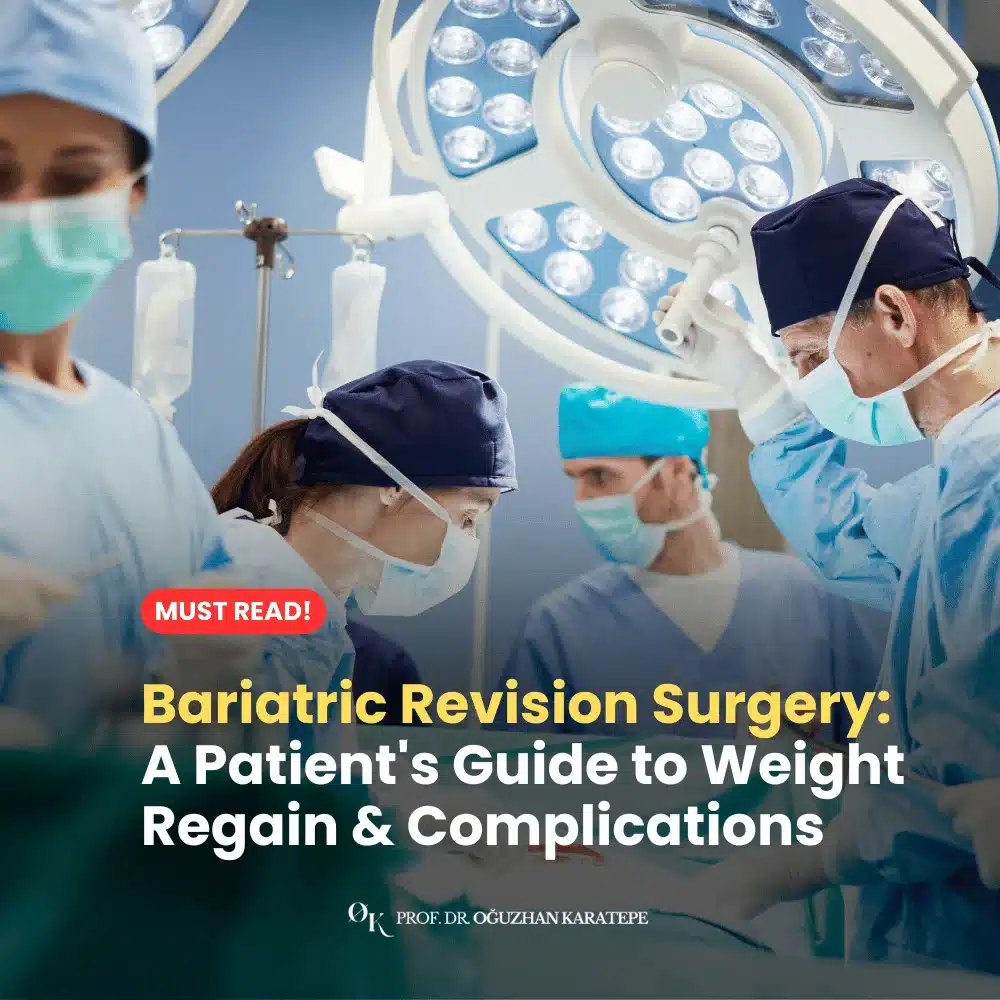
Frequently Asked Questions (FAQ) About Bariatric Revision Surgery
Q: What is bariatric surgery?
A:Bariatric surgery is the medical term for weight loss surgery. It is a group of procedures, like the gastric sleeve, that help you lose weight by making changes to your digestive system’s size and hormones.
Q: Is bariatric revision surgery safe?
A: It is a more complex operation than a primary surgery and does carry higher risks (such as leaks or bleeding) due to scar tissue. However, in the hands of a highly experienced revisional surgeon like Prof. Dr. Karatepe, these risks are minimized. The long-term risks of *not* fixing the problem (e.g., severe GERD) are often higher.
Q: What is the most common revision from a gastric sleeve?
A: The most common and effective gastric sleeve revision is the conversion to a Roux-en-Y Gastric Bypass. This procedure is highly successful at treating both significant weight regain and is the best surgical solution for resolving severe, chronic acid reflux (GERD).
Q: What is the recovery time for a bariatric revision?
A: The recovery is very similar to a primary laparoscopic surgery. It may involve a slightly longer hospital stay (e.g., 2-4 nights) for close monitoring. Most patients can return to a desk job or light activities in 2 to 4 weeks.
Q: Can my gastric sleeve be “re-sleeved”?
A: A “re-sleeve” (stapling the stretched sleeve to make it small again) is an option, but *only* if your primary issue is a dilated sleeve and you have no acid reflux. If you have GERD, a re-sleeve will make it worse. Most surgeons prefer converting to a bypass for a more reliable, long-term solution.
Q: What is the revision for a failed Lap-Band?
A: This is a very common bariatric revision. The surgeon will laparoscopically remove the Lap-Band and, often in the same operation, convert the patient to a gastric sleeve or a gastric bypass. The gastric sleeve is the most common and effective conversion from a band.
Q: Can a gastric bypass be revised?
A: Yes, but this is a very complex procedure. It can involve resizing the stomach pouch, narrowing the stoma, or bypassing more of the intestine (distalization). This type of bariatric surgery is reserved for only the most experienced expert surgeons.
Q: Will I lose weight again after a revision?
A: Yes, this is a primary goal. A bariatric revision, such as a conversion to a bypass or duodenal switch, creates a new, more powerful tool (both restrictive and/or malabsorptive) to help you re-start significant weight loss.
Q: What are the requirements for a bariatric revision?
A: You must have a full evaluation (including an endoscopy and/or X-rays) to prove a medical or anatomical reason (like a stretched sleeve or severe GERD). You must also be psychologically ready and committed to re-engaging with the bariatric lifestyle.
Q: Do I have to quit smoking to qualify for a revision?
A: Yes. This is a 100% non-negotiable bariatric surgery requirement. Smoking dramatically increases the risk of a staple line leak, which is already a higher risk in revision surgery. You must be nicotine-free for at least 6-8 weeks, or you will not be eligible.
Q: How long after my first surgery can I get a revision?
A: Surgeons usually wait at least 18 to 24 months to ensure the first surgery has fully matured and that the problems are persistent. The only exception is for an urgent medical complication (like a band erosion or severe stenosis).
Q: Will my insurance cover a bariatric revision?
A: This depends on your provider. If the revision is deemed “medically necessary” (e.g., to treat severe, documented GERD or an ulcer), it is more likely to be covered. A revision for weight regain alone can be more difficult to get approved.
Legal Disclaimer
This information is for general educational purposes only and is not a substitute for professional medical advice. For personalized treatment plans, please contact Prof. Dr. Oguzhan Karatepe directly.
Contact Us Today
Our expert team in bariatric surgery is ready to assist you. If you are struggling with weight regain or complications after your primary surgery and want to discuss your options for a bariatric revision surgery, please contact us for a confidential consultation.
Free WhatsApp Consultation:
Contact us now! 👉 +90 530 489 94 74
How can I book an appointment?
You can contact us directly via phone, WhatsApp, or by filling out the online contact form on our website. Our dedicated patient coordinators will be happy to schedule your consultation with Prof. Dr. Karatepe.




